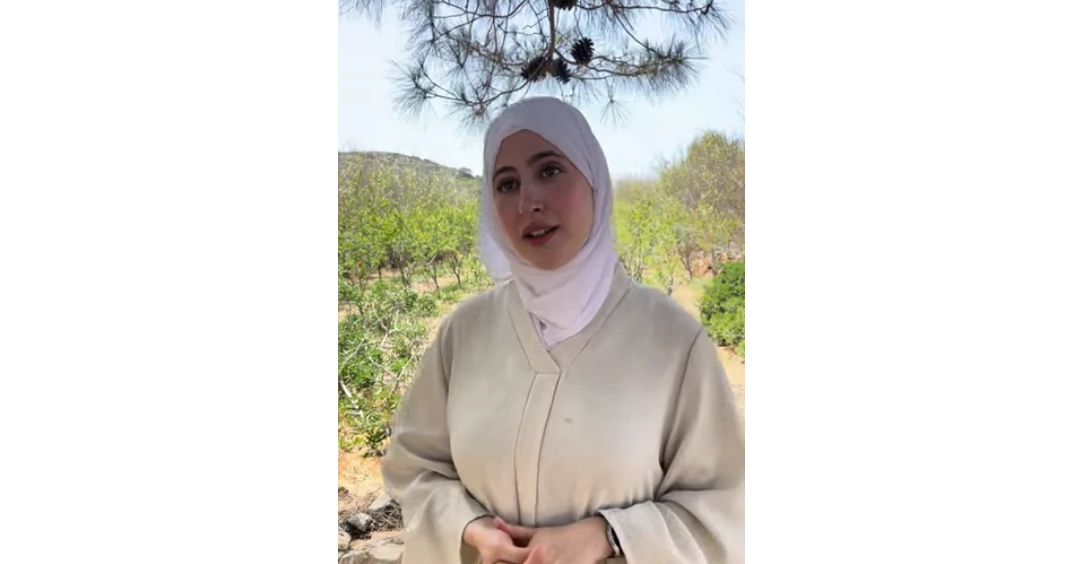E-LEARNING HOPE
Site blog

What is the main HOPE challenge?
The project HOPE aims to put the severe health threats of heatwaves on the agenda of the older adult service and healthcare sectors and to have an inclusive approach for the whole ecosystem
What are the goals of the project?
The objective is to develop and strengthen the competencies of students, informal caregivers, and professionals in older adult health, care and social sectors on better responding to the needs of older adults during heatwaves and thereby better mitigating the risks.
What actions and tools will be developed?
An innovative teaching tool for students and formal/informal caregivers will be developed and implemented. This tool will be innovative, attractive, and practical to use. The international component will be appealing to the learners since it provides a broader scope of options on how to deal with heat problems in times of heatwaves in vulnerable older adults. Increased skills will therefore contribute to better care for older people. We wish to support and stimulate organisations in the older adult ecosystem to apply guidelines and best practices regarding care during heatwaves.
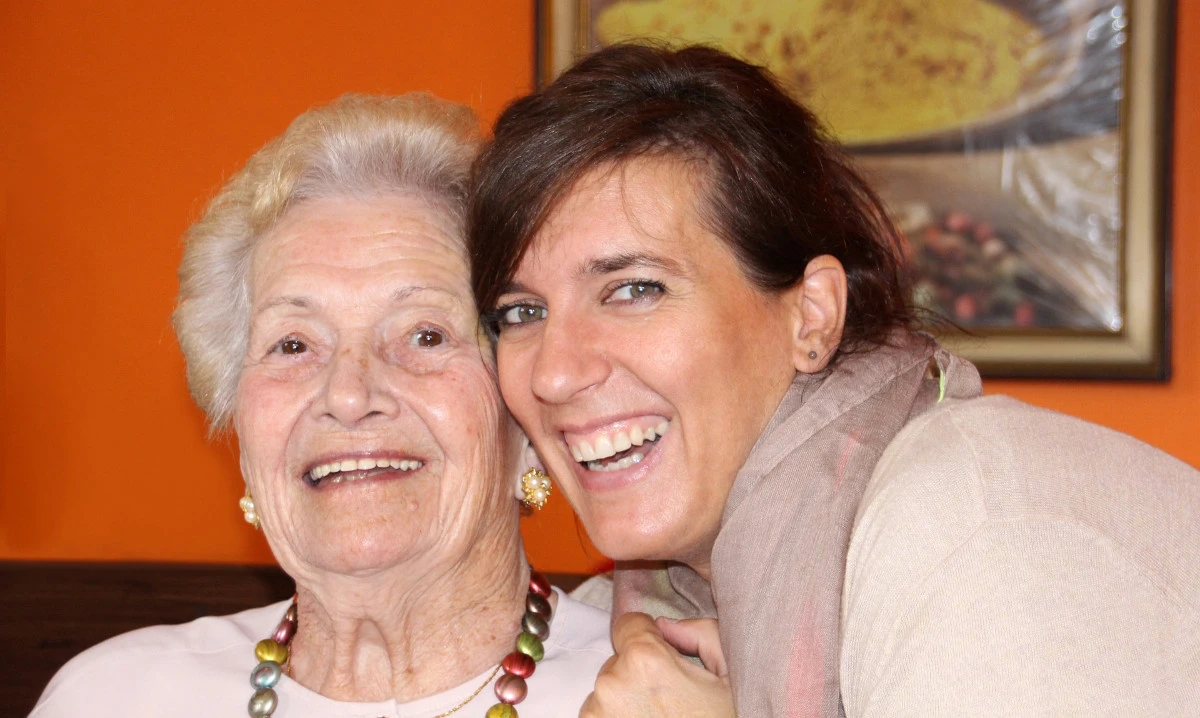
The guidelines for ecosystems and the database of good practices will be developed in collaboration with associated partners, older adults and caregivers, and implemented in organisations connected to the project. In addition, local and regional authorities will be supported through policy recommendations on how to play a role in the fight against heat risks for their older inhabitants. The recommendations will be implemented by municipalities connected to the project;
How do you foresee that this project could be a help to other authorities and organizations?
By communicating and disseminating project results and best practices on local, regional, national, European, and international levels, the aim is to develop an integrated approach to be further adopted by other organisations and authorities, decreasing the morbidity and mortality rate and improving the care provided through collaboration, new policies and approaches, knowledge exchange and change management.
Vildana Gacic - Project Coordinator

The Covid-19 crisis has made clear that we should prepare for crises that can develop into very serious situations. Looking at the near future, climate change is a strategic topic. The most acute threat of climate change to public health, at this time, are long periods of (extreme) heat. In the Netherlands, last summer was mild, but the three previous summers broke heat record after heat record. We all observed the high temperatures in the Southern European countries. We also observed the sudden increase in temperatures in the North-West of America; their meteorologists predicted wrong – they were 5 degrees off the mark. Rather than being surprised, we must be prepared. Prepared in the sense of being as close as possible to the ones that are most at risk: older people. This is the foundation for this project. The HOPE consortium ensures the involvement of older people and their caretakers themselves.
In addition, having a central role, the educational institutes will teach care-students (= our future caretakers) to deal with this new public health task. As the city of Rotterdam is ahead with its climate adaptation programme, it is keen to coordinate the joint HOPE project 2022 -2025. Within our city organisation this is an interdepartmental project: public health, urban planning, elderly care, climate policy to name just a few of the departments involved. Because it is so close to real life: reality doesn’t bother itself with the structures and procedures of a bureaucratic system. That is also why we are optimistic that this project will get a spin-off. The concreteness of this heat-topic inspires energy and buy-in: people want to join in. The products that will come forward will be kept it as tangible as possible: an innovative teaching-tool for students and formal/informal caregivers, guidelines and best practices, policy recommendations. They will be communicated a.o. by the website and this newsletter. We invite you to join in the next three years and, together with us, put effort in getting your organization, your students and yourselves prepared to respond to a severe heatwave.
Willemijn Lamoré - Manager for Public Health of the city of Rotterdam
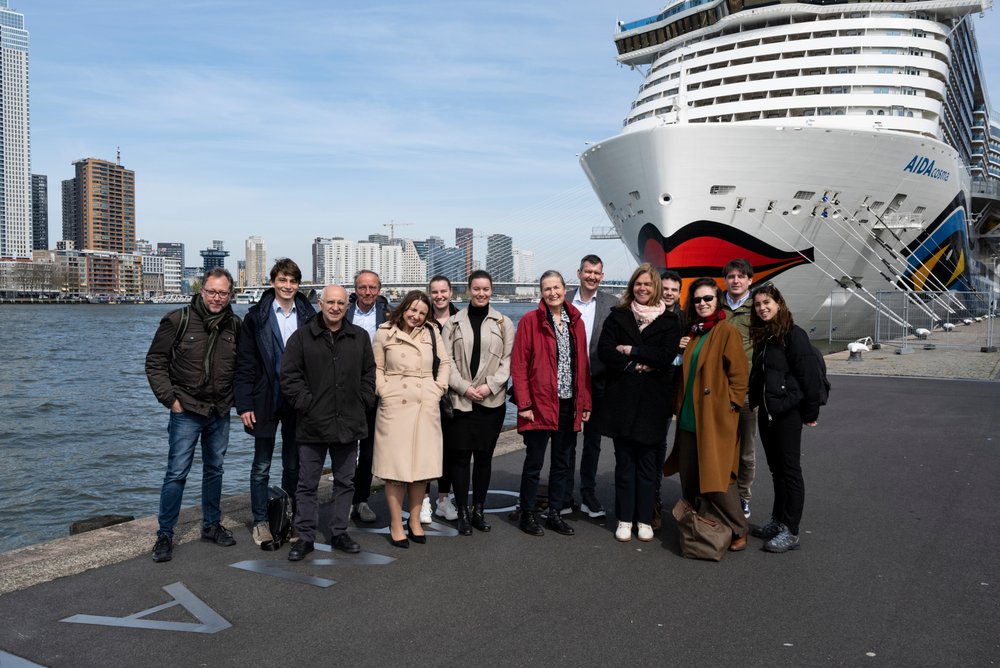
On the 11th and 12th of April 2022, the HOPE project consortium organized the first transnational project meeting in Rotterdam. Partners from across Europe, including ISRAA, Altera Vita, ENSA, Amadora, and the Hogeschool Rotterdam participated. During these two days, activities and working visits to associated partners in Rotterdam were organized by the project coordinator.
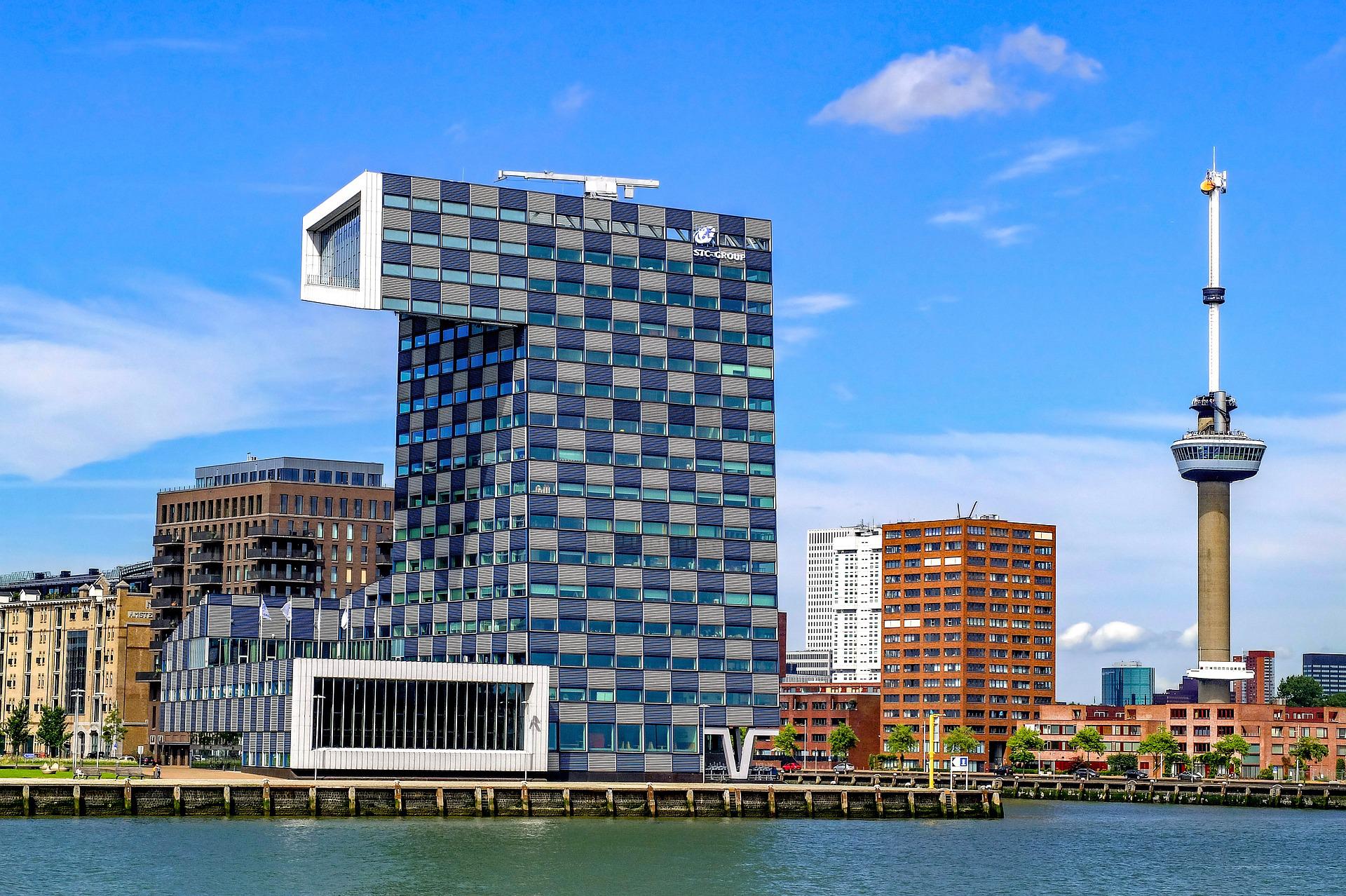
It’s a great opportunity for the HOPE partnership and for other local and regional authorities at the international level to benefit from your expertise as an Alderman of the city of Rotterdam. We would be most interested by insights of the elderly care and climate adaptation policies of Rotterdam.
What does the climate subject “heat” mean to you?
Extreme heat directly affects the health and safety of our elderly residents in particular. That is why it is important that we explore what we can and should do as local government to be prepared for it. One thing is clear: we cannot do it alone as a local government; preparedness is something we really need to develop in cooperation with the elderly themselves, and together with the care and welfare organizations.
Why do you think the HOPE project is important for the city of Rotterdam?
Rotterdam has always been a young city, as we have so many people that see the chances that Rotterdam offers. Despite this, the city continues to get older, and the number of senior citizens in Rotterdam is growing. By 2035, 1 in 5 Rotterdammers will be 65 years of age or older. The number of over-75s, in particular, will increase. As a government, we must anticipate this. We simply cannot abandon all those elderly people. Also, our local healthcare system would become overburdened. Therefore, it is good that HOPE stimulates us to discuss this theme and explore useful options.
What are the most important topics for you in relation to HOPE?
Living at home longer
In the Netherlands, only 6% of the elderly stay in a nursing home. Older adults would like to live independently for as long as possible. The need for independent housing with appropriate care and facilities is therefore increasing. We need to prepare the city for this development and make sure Rotterdam is a city where you can continue to live comfortably and safely at home for as long as possible. Where you can stay active, meet people, and where appropriate care and support are always close-by. To prepare the city for this development, the municipality developed the program ‘Rotterdam Older and Wiser’. The welfare organizations visit the over-75s at home and organize activities for healthy ageing. There are health consultation hours.
Age-friendly neighbourhoods and activities
In a “senior-friendly neighbourhood”, organizations for care and welfare, housing corporations, the municipality, market parties and senior citizens work closely together. One example is the HomePlus Apartments. In a HomePlus flat, elderly people live independently, but there is also care and support. They support family caregivers. I imagine that during a heat wave, people in such a senior-friendly neighbourhood will be able to support each other more easily, and the caregivers will be more aware of how to respond to extreme weather conditions.
Suitable housing
In senior-friendly neighbourhoods, the relevant parties are also looking at what will be built in the area in the coming years, and how it will become an attractive area for seniors. In February 2020, 42 parties - the municipality, housing corporations, care and welfare organizations, developers, investors and a health insurer – together signed the Langer Thuis agreement, which runs at least until 2025. They agreed to work together to create more suitable housing for seniors and to develop innovative housing and care concepts. The HomePlus flats are a good example of this. The homes and the outdoor space must also be equipped to relieve the heat.
It is quite unusual to involve the domain of care in the local climate approach. How do you manage?
Rotterdam indeed is one of the first large cities in the Netherlands to create a local heat plan. The Rotterdam heat-plan is integrated into a broader climate adaptation program, called ‘WeatherWise’. The WeatherWise program broadened its focus from water safety to other urgent climate issues like heat and drought, and from the public to the private domain. The relatively new focus on heat results in the involvement of private care and wellbeing organisations and public health in climate adaptation plans. I am very glad about that. And I am especially glad that, thanks to the HOPE project, our University of Applied Sciences is on board. Students in care education get the opportunity to put their climate worries into action in their professional roles.
What would you like to pass on to aldermen in other cities?
Work together with all the relevant parties in your city and don’t forget to do it together with the elderly. Explore how to create senior-friendly neighbourhoods, in which housing, welfare, and healthcare all come together. This must include protection against heat. In this way, the elderly can continue to live comfortably and safely at home in our cities.
Christine Eskes - Vice-Mayor, city of Rotterdam
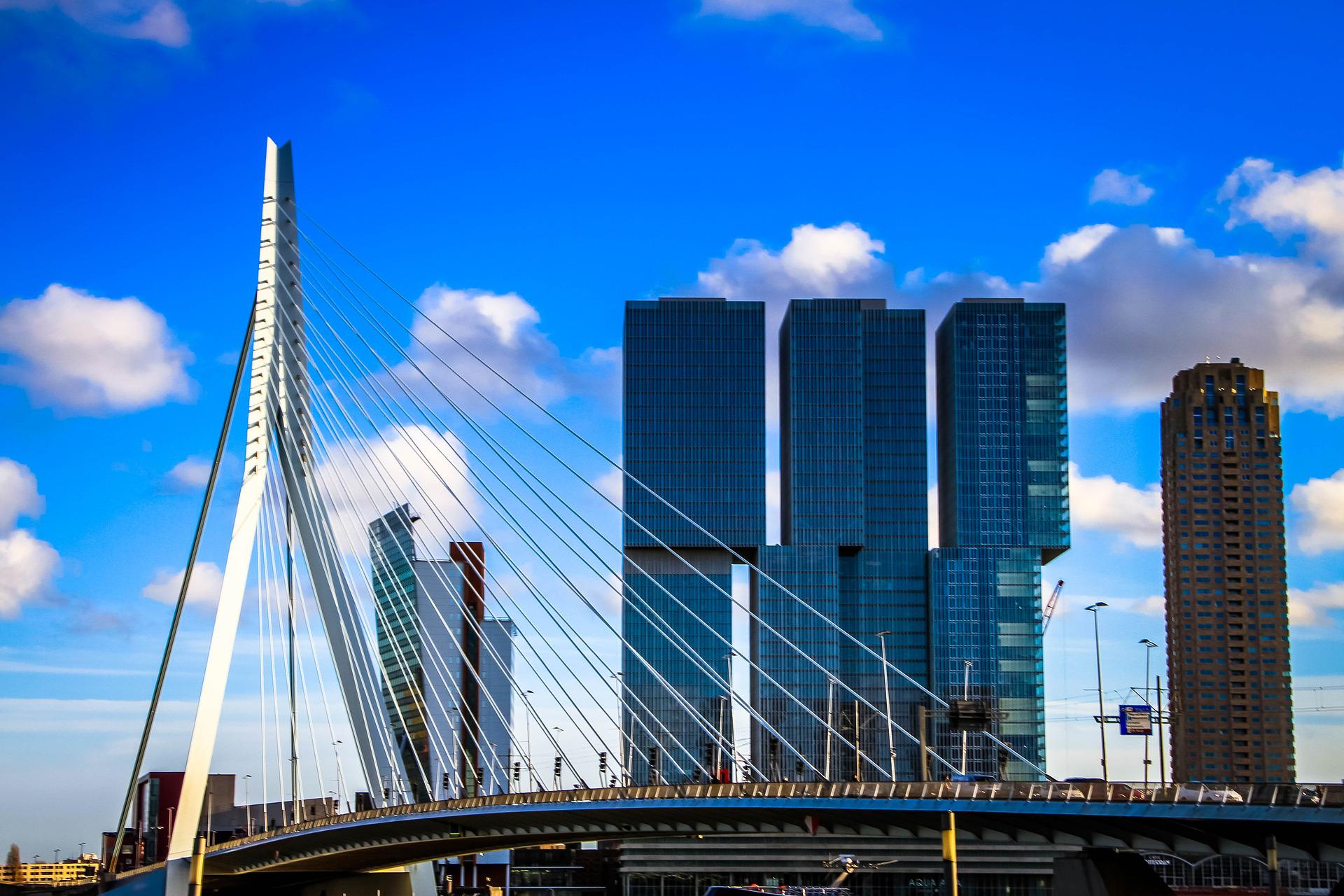
Gemeente Rotterdam
The Netherlands, Rotterdam
The city of Rotterdam is the second largest city in the Netherlands, it has an increasingly diverse population with over 170 nationalities represented in its estimated population of 651,000 while almost 1.5 million live in its conurbation.
Following population decline associated with de- industrialisation in the 1970s, the population of Rotterdam has continued to grow year on year. Rotterdam is one of the youngest cities in Europe (reflected by good universities), with 30% of the population under the age of 25. Despite this, the city continues to get older, and the number of senior citizens in Rotterdam is growing. By 2035, 1 in 5 Rotterdammers will be 65 years of age or older. The number of over-75s in particular will increase. Given the "island effect" (densely built-up city retains heat) in Rotterdam, an increased risk of disease and mortality is to be expected. Rotterdam municipality has therefore started a local heat plan, which is part of Rotterdam's climate adaptation program Rotterdams Weerwoord (Rotterdam WeatherWise). The goal of Rotterdams Weerwoord is to make Rotterdam climate proof by 2025 as higher temperatures cause health problems among the elderly and the sick. Physical adaptation of the city means an opportunity for a more beautiful, multifunctional outdoor space with more chances to meet people. Climate change is not only a threat, but also an opportunity.
Hogeschool Rotterdam

The Netherlands, Rotterdam
Rotterdam University of Applied Sciences (RUAS) is one of the five largest universities of Applied Sciences in the central urban region of the Netherlands (the ‘Randstad metropool’). The university has as a mission to connect education and students to the city and region of Rotterdam and, if possible and needed, to the world. All faculties of the university offer practice based educational projects in their program to prepare students for their future. The main approach is therefore practice-based. The university hosts five knowledge centers in different fields of education. Specifically, the Research Centre Innovation in Care aims at innovating the approaches of both health promotion and long-term care. Students of RUAS in collaboration with research lecturers, professors, professionals, citizens and business partners carry out several innovation projects. By addressing real life challenges, such as how to manage heat, it is possible to gain knowledge and put it in into practice. Concrete activities include the daily practice of nursing homes, daily lives of independently living older persons and the curricula of education of future health care professionals.
ISRAA Treviso

Italy, Treviso
Learn more at israa.it
I.S.R.A.A. is an Italian public senior care provider based in Treviso whose aim is to promote the highest quality of care and quality of life of older people living in their private homes, in nursing homes, in daily care centers or in smart cohousing venues. Furthermore, I.S.R.A.A. supports age-friendly environments and older people’s relatives by providing innovative knowledge and care to remain independent as much as possible despite of their functional, cognitive and social limitations. The institute provides also personalized consultancy, training, support and emotional relief to informal carers of older people suffering from dementia thanks to a dedicated Specialized Dementia Center. All the activities are delivered in a closer collaboration with the municipality of Treviso and the Local National Health Unit of the Italian National Health System. I.S.R.A.A. counts with the support of a European project department, named Faber www.fabbricaeuropa.eu.I.S.R.A.A. has a strong connection with local authorities: the municipality of Treviso, the province of Treviso and the Regional EU Ministry for EU Policies working on innovation in the social and older care fields.
Santa Casa da Misericordia Amadora

Portugal, Amadora
Misericordia of Amadora is an NGO with 35 years of existence, providing services to 5800 people daily. Its services are based in 4 core areas: social support; older adults; health care and education. SCMA is totally focused on the development and delivery of methodologies, strategies, and models that fit the continuously changing profile of people’s needs, expectations, and preferences, in this way putting the person in the centre of the intervention.
In the scope of HOPE, SCMA will be responsible for the development of the guidelines for heat management, a set of recommendations on how to manage older adults’ care during heatwaves.
Social Cooperative of Cyclades-ALTERA VITA

Greece, Νότιο Αιγαίο - Notio Aigaio, Syros
Altera Vita is a scientific research center and implements education and awareness programs, working with volunteers in the areas of Education, Environment & Culture, and Social Intervention programs at the community level.
Our alternative education programs became topical due to increasing social and professional changes in areas such as Culture, Pedagogy, Psychology, Health Promotion, New Technologies, Social Economy, Organic Farming, Environment, and Sustainable Development, which give the ability to specialize and update knowledge through non-formal ways of training.
The aim of these seminars is to make use of the new knowledge gained by the participants and their application in their professional, personal and social life. Our distance learning system is based on open sourse programs and the use of our e-Learning MOODLE platform. Actually, we participate in a lot of ERASMUS + projects and we have the coordination of the development of E-Courses for these projects. Altera Vita participates in the European Network of Social Authorities. ENSA is a network of cities and European Regions that has the aim of promoting international cooperation in the social field.
ELISAN
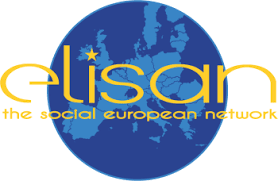
France, Paris
https://elisannetwork.wixsite.com/elisan-network
ELISAN (European Local Inclusion & Social Action Network) is a network that has been set up in 2008 at the Committee of the Regions in Brussels and is an INGO enjoying participatory status at the Council of Europe. Its main objective is to contribute to the building of a social Europe that respects national models, to raise awareness about local social policies and to promote the scaling up of innovative social practices at European level. It gathers members coming from 8 member states. ELISAN is a place for promoting local social action among the European Institutions. Specific objectives include the participation in debates, responding to the initiatives taken by European institutions and influencing decision-making concerning social cohesion.
Furthermore, ELISAN promotes information exchange and stimulation of innovative European partnerships.

